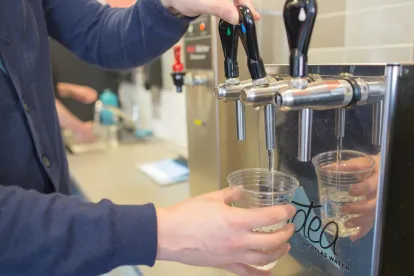The West Virginia Department of Environmental Protection (WVDEP) has issued its final Clean Water Act §401 water quality certification (WQC) for Nationwide general permits (NWPs) on April 13, 2017. The WVDEP is required to certify that NWPs do not degrade state water quality through the § 401 WQC. These §401 conditions must be implemented into any activity authorized by an Army Corps of Engineers (ACOE) NWP. Field support for the 401 program is provided by the Division of Natural Resources’ Wildlife Resources Section. For federally non-jurisdictional (or isolated) waters, the Division of Water and Waste Management (DWWM) may require a WV State Waters Permit. Mining-related 401 Certifications are issued by the WVDEP’s Division of Mining and Reclamation.
NWPs are commonly used for activities such as stream crossings, stream relocations, and filling of wetlands for roadways or well pads, etc. Selected provisions of the West Virginia §401 WQC are highlighted below:
Standard Conditions of State 401 Water Quality Certification Applicable to Nationwide Permits
- Any permitted activity for which U.S. Army Corps of Engineers (ACOE) requires pre-construction notification (PCN) in accordance with Nationwide Permit General Condition 32 requires the same information to be sent by the applicant, prior to construction, to WVDEP DWWM.
- The applicant must provide proof of compensatory- mitigation to WVDEP DWWM prior to construction for a project with permanent stream impacts greater than 300 linear feet or causing the loss of greater than 1/10 acre of wetlands.
- Culverted crossings should be sized and installed in a manner to allow the passage of aquatic life and freely pass bankfull flows. Exceptions to this requirement would be when culvert placement is on bedrock, or when stream gradient is equal to or greater than 4%, or when bankfull elevation is greater than final surface elevation.
- Land disturbances, which are one acre or greater in total area, must comply with the National Pollutant Discharge Elimination System or other state storm water permit requirements as established by the WV DEP DWWM, if applicable. Any land disturbances are required to use Best Management Practices for Sediment and Erosion Control, as described in the latest WVDEP’s Erosion and Sediment Control Best Management Practice Manual, or similar documents prepared by the West Virginia Division of Highways.
Special Conditions of State 401 Water Quality Certification Applicable to Individual Nationwide Permits
Nationwide Permit 7. Outfall Structures and Associated Intake Structures
West Virginia 401 Water Quality Certification Special Conditions:
- Forty-five day advance notification to the WV DEP is required when this permit is being used for water withdrawal, allowing for a determination of whether the water withdrawal will have more than minimal impacts on aquatic resources, thus necessitating further review or an individual certification. Information to be provided is as follows:
- the maximum water withdrawal rate
- designs to minimize impingement and entrainment of aquatic life
- a description of how the intake rate will affect streamflow, or be varied, during periods of seasonal low flow and/or drought.
No structure authorized by this permit shall impede or prevent fish movement upstream or downstream.
Nationwide Permit 12. Utility Line Activities.
West Virginia 401 Water Quality Certification Special Conditions:
- Individual Stale Water Quality Certification is required for
- Pipelines equal to or greater than 36 inches in diameter;
- Pipelines crossing a Section 10 river (unless the bore is greater than 100 feet below the stream bed on the Ohio River mainstem, or greater than 50 feet below the stream bed on all other Section 10 waters);
- Pipelines transporting hazardous materials/substances as defined by the Toxic Substances Control Act;
- Utility lines within wetlands that would use or consider the use of herbicides for right-of- way maintenance;
- Cumulative permanent impacts totaling greater than 200 linear feet, on one side, of any stream identified in Section II Condition 18 A, B, and C herein;
- Cumulative permanent impacts on any one perennial or intermittent stream totaling greater than 300 linear feet;
Pipelines carrying separated natural gas liquids, unless installed with an automated system which will indicate a sudden loss of pressure.
Horizontal directional drilling for underwater crossings requires an Inadvertent Return Contingency Plan certified by a West Virginia Professional Engineer to be kept on site and made available upon request.
The complete WVDEP document containing West Virginia’s Section 401 WQC standard and special conditions, issued April 13, 2017, that apply to the Nationwide Permits 1 through 51, and 53 as published on January 6, 2017 in the Federal Register (82 FR 1860), by the ACOE is available via the following hyperlink.




 />i
/>i


